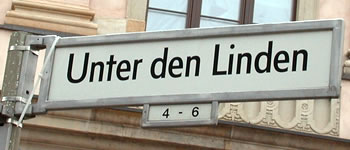Simulation, or Propaganda
I'm of two minds about Newsgaming, Gonzalo Frasca's intriguing site about serious games, a place where "Simulation meets political cartoons. " The premier game is September 12, in which you try to blow up Arab terrorists and wind up killing civilians whose mourners transform themselves into new terrorists. "Periodically," the site's authors say, "we will use games and simulations to analyze, debate, comment and editorialize major international news." (A recent Boston Globe has a long article about Christian games, including some big-budget efforts)
September 12 is small, well crafted, and timely. It makes a point. It displays fine craftsmanship. It's scaled right: on time, on budget, on your desktop.
September 12th isn't a simulation, not in any serious sense. It doesn't really look at tactical problems; it asserts that they are intractable. It doesn't really examine the political or ethical issues; it lets the wailing of women pass as judgment.
These issues are important, and the answers are less apparent than September 12 wants to make them. In 1943 the U.S. intentionally assassinated Admiral Isoroku Yamamoto. Radio intercepts had uncovered information about his travel plans, and Roosevelt specifically authorized a mission to shoot down his plane. It can be argued that this was murder, not war -- and indeed this objection was weighed very carefully in the Oval Office. On the other hand, many believed -- and might have been right in believing -- that Yamamoto could have led Japan to inflict, and to suffer, far greater casualties in the remaining years of combat, fighting a war that Japan had already lost. Yamamoto's murder, if murder it was, may have avoided many thousands of deaths that would, in the end, not have changed the outcome a whit.
I was a conscientious objector during the War in Vietnam. When soldiers who embraced or acquiesced in that war came home, we called them baby killers. This was ungenerous and unkind, but -- and this is too rarely remembered today -- it was true and it needed to be said. My politics, in short, may well be close to Frasca's -- and, after all, I'm the guy who keeps complaining that games fail to address serious questions. I'm not unsympathetic to either the artistic or the political agenda.

But the kind of statement that September 12 makes can be made with very similar force in purely visual media, in Guernica, say, or in poster art -- and without implicitly (though, I suppose, necessarily) reducing the Arab Street to a small set of automata. Indeed, that's one thing the visual plane does better: it tends to affirm the individuality of each figure, their essential humanity contained within their differences. Interaction and algorithm should give us opportunities for depth and nuance, and for exploring complexity, that the visual plane can't describe.